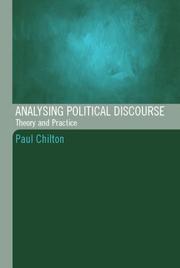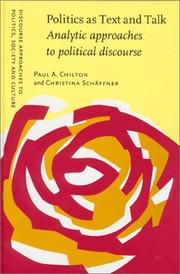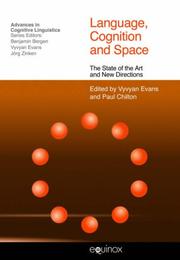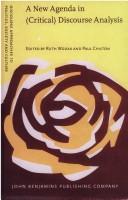| Listing 1 - 10 of 12 | << page >> |
Sort by
|
Multi
ISBN: 9781107010130 9781316007921 1316007928 9780511845703 0511845707 1107010136 1139989561 131601018X 1139984942 1316012425 1316001180 1316005682 1316003426 1108810381 9781108810388 1322066485 9781316003428 9781316005682 Year: 2014 Publisher: Cambridge Cambridge University Press
Abstract | Keywords | Export | Availability | Bookmark
 Loading...
Loading...Choose an application
- Reference Manager
- EndNote
- RefWorks (Direct export to RefWorks)
The idea that spatial cognition provides the foundation of linguistic meanings, even highly abstract meanings, has been put forward by a number of linguists in recent years. This book takes this proposal into new dimensions and develops a theoretical framework based on simple geometric principles. All speakers are conceptualisers who have a point of view both in a literal and in an abstract sense, choosing their perspective in space, time and the real world. The book examines the conceptualising properties of verbs, including tense, aspect, modality and transitivity, as well as the conceptual workings of grammatical constructions associated with counterfactuality, other minds and the expression of moral force. It makes links to the cognitive sciences throughout and concludes with a discussion of the relationship between language, brain and mind.
Lexicology. Semantics --- Mathematical linguistics --- Space and time in language --- Geometry --- Computational linguistics --- Cognitieve linguïstiek. --- Computational linguistics. --- Computerlinguïstiek. --- Geometrie en linguistiek. --- Geometry. --- Mathematical linguistics. --- Mathematische linguïstiek. --- Ruimte en tijd --- Space and time in language. --- Taalkunde. --- Language and languages --- Algebraic linguistics --- Linguistics --- Linguistics, Mathematical --- Applied linguistics --- Information theory --- Mathematics --- Euclid's Elements --- Automatic language processing --- Language data processing --- Natural language processing (Linguistics) --- Cross-language information retrieval --- Multilingual computing --- Statistical methods --- Mathematical models --- Data processing

ISBN: 0415314720 0415314712 0203354028 020356121X 1280075759 1134378882 9780203561218 9780415314718 9780415314725 9781280075759 9781134378876 1134378874 9781134378883 9781134378838 Year: 2004 Publisher: London Routledge
Abstract | Keywords | Export | Availability | Bookmark
 Loading...
Loading...Choose an application
- Reference Manager
- EndNote
- RefWorks (Direct export to RefWorks)
This is an essential read for anyone interested in the way language is used in the world of politics. Based on Aristotle's premise that we are all political animals, able to use language to pursue our own ends, the book uses the theoretical framework of linguistics to explore the ways in which we think and behave politically. Contemporary and high profile case studies of politicians and other speakers are used, including an examination of the dangerous influence of a politician's words on the defendants in the Stephen Lawrence murder trial. International in its perspective, Analysing Political Discourse also considers the changing landscape of political language post-September 11, including the increasing use of religious imagery in the political discourse of, amongst others, George Bush. Written in a lively and engaging style, this book provides an essential introduction to political discourse analysis.
#KVHA:Teksttypologie; Engels --- #KVHA:Politieke taal; Engels --- Language and languages --- Political aspects. --- Great Britain --- Languages --- Sociolinguistics --- English language --- Pragmatics --- Political aspects --- Pragmatiek --- Sociolinguïstiek --- Engelse taalkunde --- Language and languages Political aspects

ISBN: 9027226946 1588112489 9786612161568 1282161563 9027296979 9789027296979 9781588112484 9781282161566 6612161566 Year: 2002 Volume: . 4 Publisher: Amsterdam Benjamins
Abstract | Keywords | Export | Availability | Bookmark
 Loading...
Loading...Choose an application
- Reference Manager
- EndNote
- RefWorks (Direct export to RefWorks)
Human beings are political animals. They are also articulate mammals. How are these two aspects linked? This is a question that is only beginning to be explored. The present collection makes a contribution to the investigations into the use of language in those situations which, informally and intuitively, we call 'political'. Such an approach is revealing not only for politics itself but also for the human language capacity.Each chapter outlines a particular method or analytic approach and illustrates its application to a contemporary political issue, institution or mode of political behaviour. As a whole, the collection aims to give a sample of current research in the field. It will interest those who are beginning to carry the research paradigm forward, as well as provide an introduction for newcomers, whether they come from neighbouring or remote disciplines or from none.
#KVHA:Discourse analysis --- Politics --- Pragmatics --- Discourse analysis --- Analyse du discours --- Political aspects. --- Aspect politique --- Political aspects --- Philology & Linguistics --- Languages & Literatures --- Discourse grammar --- Text grammar --- Semantics --- Semiotics --- Political science.

ISBN: 9781845532529 9781845535018 1845535014 9781845534417 1845534417 9781845534424 1845534425 1845535030 9781845535032 184553252X 1781790566 Year: 2010 Publisher: London Equinox
Abstract | Keywords | Export | Availability | Bookmark
 Loading...
Loading...Choose an application
- Reference Manager
- EndNote
- RefWorks (Direct export to RefWorks)
Language, Cognition and Space brings together nineteen articles from leading scholars who investigate the relationship between spatial cognition and spatial language. This volume represents the state of the art in terms of language and space research and points to new directions in terms of findings, theory, and practice.
Cognitive grammar. --- Space perception. --- --Perception --- --Espace --- --2291 --- 801.56 --- 801.56 Syntaxis. Semantiek --- Syntaxis. Semantiek --- Psycholinguistics --- Grammar --- Affective and dynamic functions --- Cognitive grammar --- Space perception --- Spatial perception --- Perception --- Spatial behavior --- Figure-ground perception --- Geographical perception --- Cognitive linguistics --- Grammar, Comparative and general --- Cognition --- Grammaire cognitive --- English language --- Research --- Academic writing --- Report writing --- College teaching --- Learned writing --- Scholarly writing --- Authorship --- Science --- Science research --- Scientific research --- Information services --- Learning and scholarship --- Methodology --- Research teams --- Rhetoric --- Study and teaching (Higher) --- --Cognitive grammar. --- --Cognitive grammar --- Germanic languages --- Espace

ISBN: 9027227039 1588116379 9786612152962 1282152963 9027292329 Year: 2005 Publisher: Amsterdam Benjamins
Abstract | Keywords | Export | Availability | Bookmark
 Loading...
Loading...Choose an application
- Reference Manager
- EndNote
- RefWorks (Direct export to RefWorks)
#KVHA:Taalkunde --- #KVHA:Discourse analysis --- Science --- Sociolinguistics
Book
ISBN: 1282152963 9786612152962 9027292329 9789027292322 Year: 2005 Publisher: Amsterdam ; Philadelphia : J. Benjamins,
Abstract | Keywords | Export | Availability | Bookmark
 Loading...
Loading...Choose an application
- Reference Manager
- EndNote
- RefWorks (Direct export to RefWorks)
Critical Discourse Analysis (CDA) has established itself over the past two decades as an area of academic activity in which scholars and students from many different disciplines are involved. It is a field that draws on social theory and aspects of linguistics in order to understand and challenge the discourses of our day. It is time for A New Agenda in the field. The present book is essential for anyone working broadly in the field of discourse analysis in the social sciences. The book includes often critical re-assessments of CDA's assumptions and methods, while proposing new route-maps for innovation. Practical analyses of major issues in discourse analysis are part of this agenda-setting volume.
Social sciences --- Critical discourse analysis. --- Discourse analysis. --- Discourse grammar --- Text grammar --- Semantics --- Semiotics --- CDA (Critical discourse analysis) --- Discourse analysis --- Methodology. --- Critical discourse analysis --- Methodology
Book
ISBN: 128390229X 9027273782 9789027273789 9789027202611 9027202613 Year: 2012 Publisher: Amsterdam Philadelphia John Benjamins Pub. Co.
Abstract | Keywords | Export | Availability | Bookmark
 Loading...
Loading...Choose an application
- Reference Manager
- EndNote
- RefWorks (Direct export to RefWorks)
China's opening up to the West, its extraordinary economic rise, and the subsequent internal and global issues, are an object of huge interest and concern. Discourse and Socio-political Transformations in Contemporary China focuses on one aspect of the contemporary Chinese phenomenon, one that is so obvious that it is generally ignored in the mainstream academic departments - that politics, society and transformation are the product of myriad collective linguistic interchanges, some stabilized, some competing, some agonistic, some new and emerging.As an outcome of dialogue between
Discourse analysis --- Communication --- Social change --- Communication, Primitive --- Mass communication --- Sociology --- Discourse grammar --- Text grammar --- Semantics --- Semiotics --- Change, Social --- Cultural change --- Cultural transformation --- Societal change --- Socio-cultural change --- Social history --- Social evolution --- Political aspects --- Social aspects --- China --- Cina --- Kinë --- Cathay --- Chinese National Government --- Chung-kuo kuo min cheng fu --- Republic of China (1912-1949) --- Kuo min cheng fu (China : 1912-1949) --- Chung-hua min kuo (1912-1949) --- Kina (China) --- National Government (1912-1949) --- China (Republic : 1912-1949) --- People's Republic of China --- Chinese People's Republic --- Chung-hua jen min kung ho kuo --- Central People's Government of Communist China --- Chung yang jen min cheng fu --- Chung-hua chung yang jen min kung ho kuo --- Central Government of the People's Republic of China --- Zhonghua Renmin Gongheguo --- Zhong hua ren min gong he guo --- Kitaĭskai︠a︡ Narodnai︠a︡ Respublika --- Činská lidová republika --- RRT --- Republik Rakjat Tiongkok --- KNR --- Kytaĭsʹka Narodna Respublika --- Jumhūriyat al-Ṣīn al-Shaʻbīyah --- RRC --- Kitaĭ --- Kínai Népköztársaság --- Chūka Jinmin Kyōwakoku --- Erets Sin --- Sin --- Sāthāranarat Prachāchon Čhīn --- P.R. China --- PR China --- Chung-kuo --- Zhongguo --- Zhonghuaminguo (1912-1949) --- Zhong guo --- Chine --- République Populaire de Chine --- República Popular China --- Catay --- VR China --- VRChina --- 中國 --- 中国 --- 中华人民共和国 --- Jhongguó --- Bu̇gu̇de Nayiramdaxu Dundadu Arad Ulus --- Bu̇gu̇de Nayiramdaqu Dumdadu Arad Ulus --- Bu̇gd Naĭramdakh Dundad Ard Uls --- Khi︠a︡tad --- Kitad --- Dumdadu Ulus --- Dumdad Uls --- Думдад Улс --- Kitajska --- China (Republic : 1949- ) --- Social life and customs --- PRC --- P.R.C. --- BNKhAU --- БНХАУ
Book
ISBN: 9027270368 9027206457 1306636671 9789027270368 9789027206459 Year: 2014 Publisher: John Benjamins Publishing Company
Abstract | Keywords | Export | Availability | Bookmark
 Loading...
Loading...Choose an application
- Reference Manager
- EndNote
- RefWorks (Direct export to RefWorks)
This chapter discusses theoretical and methodological issues concerning doing critical discourse analysis in China. The authors believe that China's unique social, cultural and political context justifies an assumption that the Western originated paradigm of critical discourse analysis needs tailoring and appropriating when being applied in China. Starting from this assumption, the chapter discusses four issues relevant to discourse approach to the socio-political transformations in China: a 'wider' angle critical perspective, a research focus on the functionality of discourse, the emergent
Discourse analysis --- Communication --- Social change --- Political aspects --- Social aspects --- China --- Social life and customs --- Change, Social --- Cultural change --- Cultural transformation --- Societal change --- Socio-cultural change --- Communication, Primitive --- Mass communication --- Discourse grammar --- Text grammar --- Cina --- Kinë --- Cathay --- Chinese National Government --- Chung-kuo kuo min cheng fu --- Republic of China (1912-1949) --- Kuo min cheng fu (China : 1912-1949) --- Chung-hua min kuo (1912-1949) --- Kina (China) --- National Government (1912-1949) --- China (Republic : 1912-1949) --- People's Republic of China --- Chinese People's Republic --- Chung-hua jen min kung ho kuo --- Central People's Government of Communist China --- Chung yang jen min cheng fu --- Chung-hua chung yang jen min kung ho kuo --- Central Government of the People's Republic of China --- Zhonghua Renmin Gongheguo --- Zhong hua ren min gong he guo --- Kitaĭskai︠a︡ Narodnai︠a︡ Respublika --- Činská lidová republika --- RRT --- Republik Rakjat Tiongkok --- KNR --- Kytaĭsʹka Narodna Respublika --- Jumhūriyat al-Ṣīn al-Shaʻbīyah --- RRC --- Kitaĭ --- Kínai Népköztársaság --- Chūka Jinmin Kyōwakoku --- Erets Sin --- Sin --- Sāthāranarat Prachāchon Čhīn --- P.R. China --- PR China --- Chung-kuo --- Zhongguo --- Zhonghuaminguo (1912-1949) --- Zhong guo --- Chine --- République Populaire de Chine --- República Popular China --- Catay --- VR China --- VRChina --- 中國 --- Jhongguó --- Bu̇gu̇de Nayiramdaxu Dundadu Arad Ulus --- Bu̇gu̇de Nayiramdaqu Dumdadu Arad Ulus --- Bu̇gd Naĭramdakh Dundad Ard Uls --- Khi︠a︡tad --- Kitad --- Dumdadu Ulus --- Dumdad Uls --- Думдад Улс --- Kitajska --- 中国 --- 中华人民共和国 --- Social history --- Social evolution --- Sociology --- Semantics --- Semiotics --- China (Republic : 1949- ) --- S06/0438 --- S06/0424 --- S12/0215 --- S11/1400 --- China: Politics and government--Policy towards press, Internet --- China: Politics and government--CCP: since 1989 --- China: Philosophy and Classics--Philosophy of language --- China: Social sciences--Mass media: general --- PRC --- P.R.C. --- BNKhAU --- БНХАУ --- Discourse studies --- Communication studies
Book
Year: 1998 Publisher: Amsterdam ; Philadelphia : John Benjamins Pub.,
Abstract | Keywords | Export | Availability | Bookmark
 Loading...
Loading...Choose an application
- Reference Manager
- EndNote
- RefWorks (Direct export to RefWorks)
The year 1989 brought political upheavals in Central, Eastern and Southern Europe, the effects of which have not yet ended. The political discourse of the Cold War period disintegrated and gave way to competing alternatives. The contributors to this book are linguists, discourse analysts and social scientists, from all corners of the continent, whose tools of analysis shed light on the crucial two years of transition during which political concepts and political interaction changed in dramatic and sometimes violent ways.
Book

ISBN: 1282296566 9786612296567 3110216086 9783110216080 9781282296565 9783110205862 3110205866 6612296569 Year: 2009 Publisher: Berlin Boston
Abstract | Keywords | Export | Availability | Bookmark
 Loading...
Loading...Choose an application
- Reference Manager
- EndNote
- RefWorks (Direct export to RefWorks)
In a collection of 16 papers, eminent scholars from several disciplines present diverse and yet cohering perspectives on the expression of social knowledge, its acquisition and management. Hence, the volume is an attempt to view the social functions of language in a novel, systematic way. Such an approach has been missing due to the complexity of the matter and the emphasis on purely cognitive properties of language. The volume starts with a presentation of overarching issues of the social nature of humans and their language, providing strong evidence for the social fundaments of human nature and their reflection in language and culture. The second section demonstrates how social functions can be displayed in discourse by using language play and humor, irony and attributions as well as references to social schemas. The chapters in the third part examine a wide range of particular linguistic elements carrying social-cognitive functions. An important finding is that social-cognitive functions have to be inferred on the basis of social knowledge, frequently with the help of non-verbal cues, since languages offer only few direct expressions for them. In other words, linguistic devices used to express social content tend to be multifunctional. Interestingly, this multifunctionality does not prevent their rapid recognition. The volume presents valuable information to linguists by widening the cognitive-linguistic framework and by contributing to a better understanding of the role of pragmatics. It is also beneficial to social and cognitive psychologists by offering a broader view on the encoding and decoding of social aspects. Finally, it offers a number of fruitful ideas to students of cultural and communication studies.
Language and culture. --- Sociolinguistics. --- Social perception. --- Cognition, Social --- Interpersonal perception --- Social cognition --- Interpersonal relations --- Perception --- Social cognitive theory --- Language and languages --- Language and society --- Society and language --- Sociology of language --- Language and culture --- Linguistics --- Sociology --- Integrational linguistics (Oxford school) --- Culture and language --- Culture --- Social aspects --- Sociological aspects --- Cognitive linguistics. --- interpersonal communication. --- social interaction.
| Listing 1 - 10 of 12 | << page >> |
Sort by
|

 Search
Search Feedback
Feedback About UniCat
About UniCat  Help
Help News
News